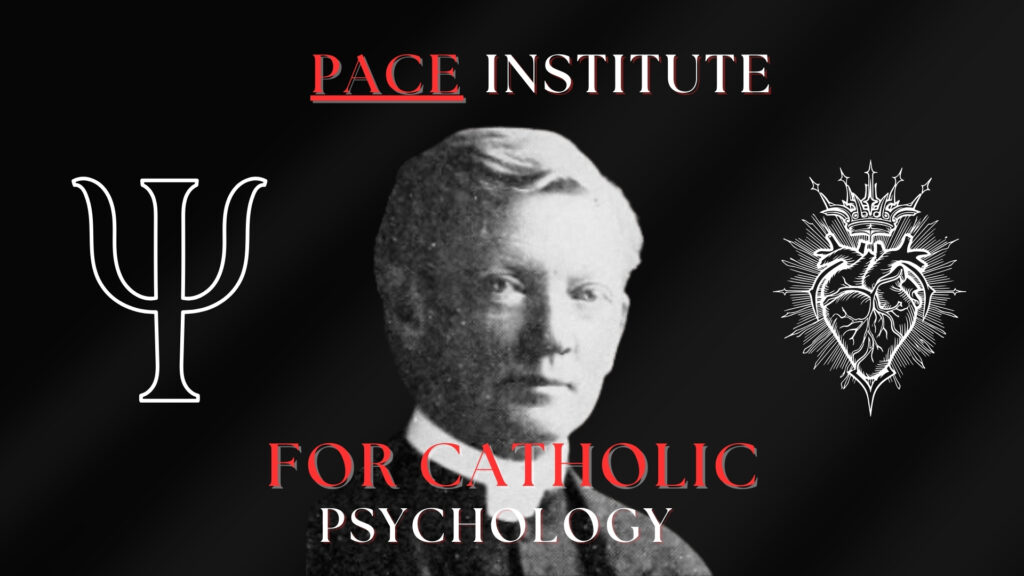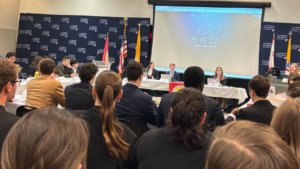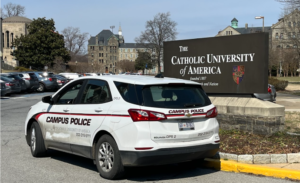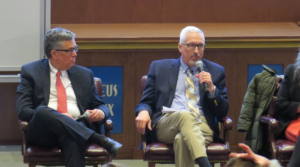“Study of the Soul”: Student Group Brings Psychology Back to Its Spiritual Roots

By Dean Robbins and Therese Sanctafamilia
80% of psychologists say they did not receive any training on addressing spiritual issues in therapy. Up to 94% of psychologists further say they think there should be education on spirituality in the therapist’s office. This poll is simply a sign of a larger trend in psychology now. There is a serious push in the secular psychological community to engage more with faith.
There is a new CUA student group, called the “Pace Institute for Catholic Psychology” which wants Catholic’s psychology program to be at the forefront of this movement.
The American Psychological Association, acronymized as APA, is the standardizing body on the entire psychology field. They have made significant strides towards giving “faith” a more prominent role in the industry.
Last year’s APA convention included an interfaith prayer room. The 2023 APA President, Dr. Thema Bryant, wrote, “Embodied healing and integration of people’s faith, religion, and/or spirituality is essential for the advancement of the field.”
Bryant furthers her point in a blog she wrote, November of last year. She says that psychologists need to “revisit our roots” since psychology was initially “the study of the soul.”
The CUA Psychology program is in a unique position to further this trend, since our very roots have been steeped in the intersection of faith and reason since its inception.
The CUA psychology program was founded in 1891 by Monsignor Edward A. Pace, who studied under the “father of experimental psychology” Wilhelm Wundt. Pace vigorously pursued the field, despite apprehension from many Catholics. He set out to prove there was a compatibility between psychology and Catholic philosophy. It must not be forgotten that Pace also established our School of Philosophy, too. At its conception, CUA’s psychology department. was inextricably linked with philosophy and theology.
That is why a collective of CUA students have created the Pace Institute for Catholic Psychology, an organization aimed at the integration of modern psychological science with the greatest contributions of theology and philosophy. We plan to host various lectures and dialogues with leading experts in psychology, other social sciences, philosophy, and theology.
We do not need to look far for an example: the leading Catholic integrationist psychology program is at Divine Mercy University, acronymized as DMU, only miles away in Alexandria. The school is a graduate-level psychology and counseling degree-giving institution. They are solely focused on giving out degrees for psychology and counseling. DMU has been the foremost leader in integrating psychology, philosophy, and theology. This integration is seen primarily through their “Catholic Christian Meta-Model of the Person,” or the CCMMP.
Last semester, the CUA Psychology Club brought their Director of Clinical Training Dr. Helena Orellana, PsyD. to discuss Divine Mercy’s model, which was presented last year at the 2023 American Psychological Association convention in DC. The Institute hopes to strengthen CUA’s relationship with Divine Mercy University in the coming years.
The main point of the model is that through layering each of the three disciplines, we gain a greater understanding and appreciation for the human person. It’s as if each school of thought is a lens on an ever-enlarging magnifying glass. As each discipline is layered on the next, the human person is made clearer and therefore, more understood. Each of these human-centric disciplines are better together. The whole is greater than the sum of its parts.
The textbook explains the theological contribution “that we are interpersonally relational and called to love each other.” The DMU model of psychology does not mean the inclusion of Christianity in therapy always but rather a disposition for the therapist towards authentic care for the person and their pursuit of flourishing.
The CUA psychology department can situate the discipline in a broader Christian anthropology so as to give its students a fuller understanding of the human person, mind and body. Pope St. John Paul II gave an address to the American Psychiatric Association in 1993 where he said:
“for this reason [the unity of mind and body], the Church is convinced that no adequate assessment of the nature of the human person or the requirements for human fulfillment and pyscho–social well–being can be made without respect for man’s spiritual dimension and capacity for self–transcendence.”
JOHN PAUL II, Monday, 4 January 1993
The new marketing campaign calls for CUA to “lead with light.” The CUA psychology department should look to its founder Msgr. Pace as a foundational example of integration in this new era of psychology. In order to lead with light, we should look to the past to prepare for the future.






